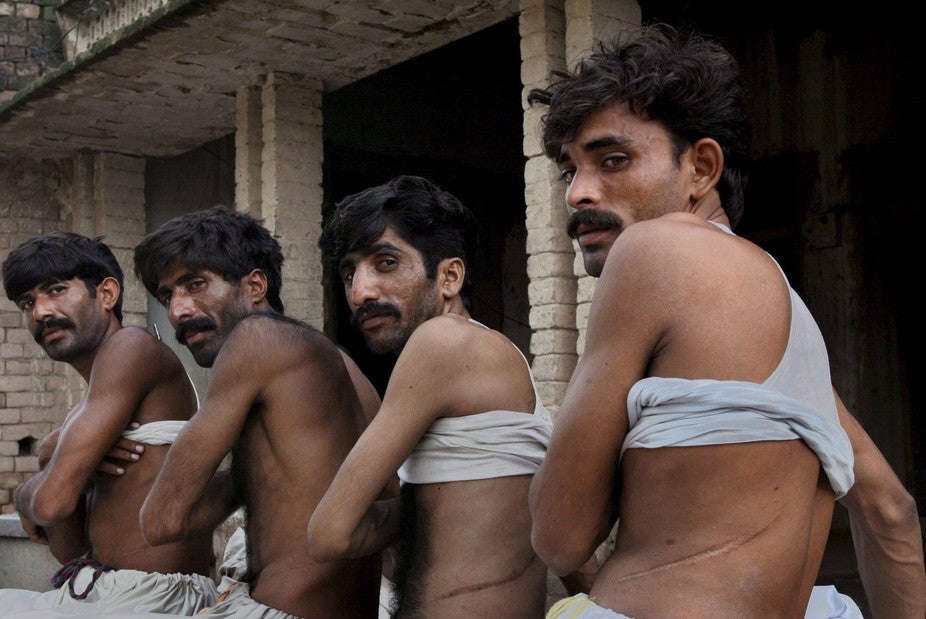It’s not always wrong to pay people for their organs
The sale of organs can be viewed as coercive and exploitative, but there is a middle ground

There aren’t enough organs to go around and many people die waiting for transplants. As a result, a black market in organs has sprung up.
A recent raid in Pakistan exposed a gang of doctors and agents who had been illegally buying kidneys from live donors. Perhaps it’s time to consider a state-regulated market in organs. Or perhaps the government should buy organs itself, paying donors in cash or with healthcare benefits.
In this vein, a transplantation committee in the Indian city of Aurangabad is considering a scheme that would provide free healthcare to family members of deceased organ donors.
Meanwhile, some US hospitals are rewarding live donors with vouchers that can be used to obtain organs in the future.
But many objections have been raised to these sorts of incentive schemes, with perhaps the most serious being that they are exploitative and coercive. Let’s consider these objections in turn.
Exploitation
Suppose the government decides to allow a private market for live kidney donations. A market springs up, and the average price paid for a kidney is £1,000. Almost all donors are unemployed and in financial need, and most recipients are well-off.
Some will object that this market is exploitative.
On one interpretation, the worry is that organ buyers are taking advantage of the vulnerability of the poor. Buyers use this vulnerability to obtain organs for a lower price than they would have had to pay were the donors not vulnerable.
This problem could be avoided by guaranteeing a minimum price for organs. Governments could enforce a minimum cash price or they could could take on the role of “buyer” themselves, providing cash rewards or perhaps vouchers that can be used to obtain an organ for oneself or a loved one in the future.
Either way, if the reward is large enough that the donor would donate even if not vulnerable, then the buyer would no longer be profiting from vulnerability.
Coercion
Suppose that, convinced by this reasoning, the government bans the private market but introduces a tax-funded £100,000 reward for all live kidney donors.
Now some will raise a new objection: this scheme risks coercion because, for those in financial need, the reward will be effectively irresistible. While it is true that even the poorest people formally have the choice not to donate, the reward may be so attractive that not donating isn’t a reasonable option.
According to a popular though contested view, if one can’t reasonably refuse donation, one is a victim of coercion.
A tension
To avoid exploitation, we may need to ensure that incentives for organ donation are large enough that donors would donate even if they are not vulnerable. But if incentives become too large, some will regard them as coercive.
Is there any space between these two worries? Is it possible to both avoid the charge of exploitation and the charge of coercion?
In some cases, perhaps not. Consider live donation of a liver lobe. Because this can lead to significant complications, most non-vulnerable people would need a large incentive to donate. But some will fear that a large incentive would be coercive for many.
In other cases, though, it seems clear that a middle ground can be found. Take deceased-donor organ donation. Suppose the government would pay anyone who agreed to donate their organs after their death.
A small payment would probably be enough to avoid the charge of exploitation here, for many non-vulnerable people agree to such donation even in the absence of any incentive. And, if the incentive is only modest, the risk of coercion is low.
If incentives for organ donation can be exploitative and coercive, that may rule out their use in some cases. But in others, it seems possible to tread the line between these two objections. Providing rewards for deceased-donor organ donation is one such example.
Tom Douglas is a senior research fellow at the University of Oxford. This article was originally published on The Conversation (www.theconversation.com)
Join our commenting forum
Join thought-provoking conversations, follow other Independent readers and see their replies
Comments
Bookmark popover
Removed from bookmarks